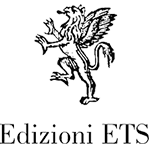Call for papers | Writing and New Languages | Graphos 1/2025
When we think of writing, we tend to think of it in its most traditional form, as a form of expression that privileges the use of writing tools such as ink pens and sheets of paper. However, new digital languages have introduced forms of communication and interaction that have expanded the conventional notion of writing. One of the first effects has been the democratisation of writing: with access to the Net, anyone can now post thoughts, opinions, reflections, personal stories. This accessibility has given rise to a diversity of voices and writing styles, alternative forms of expression and new openings in a field that was previously limited to the elite who wrote professionally.
In addition, new communication styles are emerging as a result of new tools: visual and multimedia languages integrate written text with images, videos and sounds, offering richer and more engaging narrative experiences and allowing creators to express complex ideas in innovative ways.
The issue of synthetic, highly abbreviated languages, which are increasingly used in the communication of social networks and especially by the new generations, seems to be a significant element in observing the change in social language: a scenario is opening up that is characterised by new communication codes, made up of emoji, acronyms and abbreviations, which strongly condition writing and the way everyday interpersonal relationships are established. The question arises as to whether these new linguistic forms are in fact an evolution of written language, or whether they can be seen as a critical issue that requires careful reflection, also from a pedagogical point of view.
There is no shortage of challenges: the proliferation of information and the abundance of online sources raises the question of how to learn and teach to distinguish between reliable content and disinformation. In essence, while it is true that writing is being enriched with new forms and tools that make it increasingly flexible and usable, it is also crucial to maintain a balance that recognises the value of traditional writing and deep communication. The next issue of Graphos, therefore, intends to question the new forms of writing by welcoming contributions that reflect on this delicate balance and share research experiences on the innovative and constructive use of multiple writing languages.
The contributions can be of a theoretical-foundational, epistemological-methodological, theoretical and practical nature; historical-pedagogical and pedagogical; didactic-methodological, with reference to the principles and teaching models of handwriting, and also to the design of plausible teacher training courses; theoretical, empirical or experimental, from the perspective of empirical research and reflection on interventions aimed at improving teachers' professionalism in the teaching and learning processes of handwriting in their transformation related to the change of cultural processes.
In addition, as with all issues, the journal includes a section for free papers in the broad and pluralistic field of education.
Submission of proposals: 30 March 2025
Publication of issue: 30 July 2025




 Edizioni ETS s.r.l. LUNGARNO MEDICEO 16 - 56127 - PISA
Edizioni ETS s.r.l. LUNGARNO MEDICEO 16 - 56127 - PISA